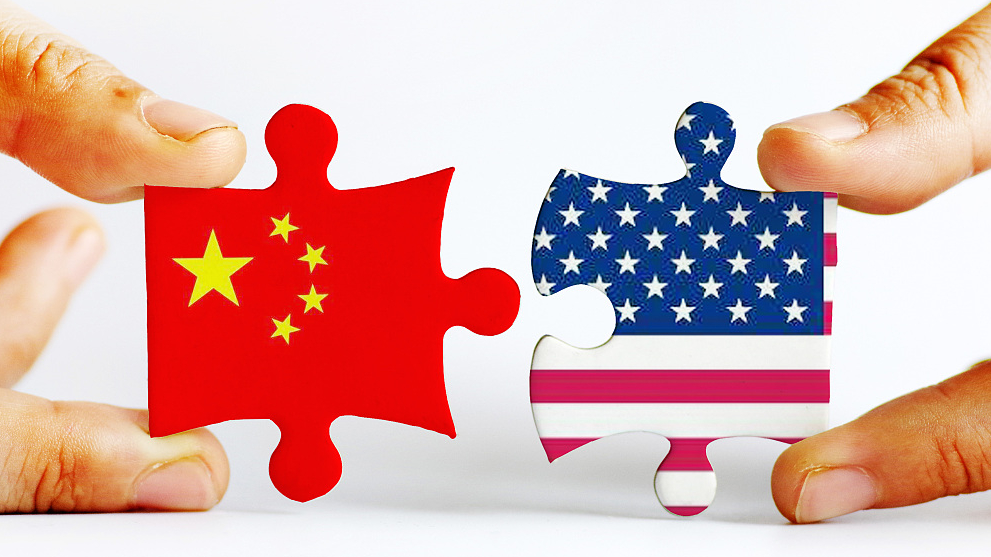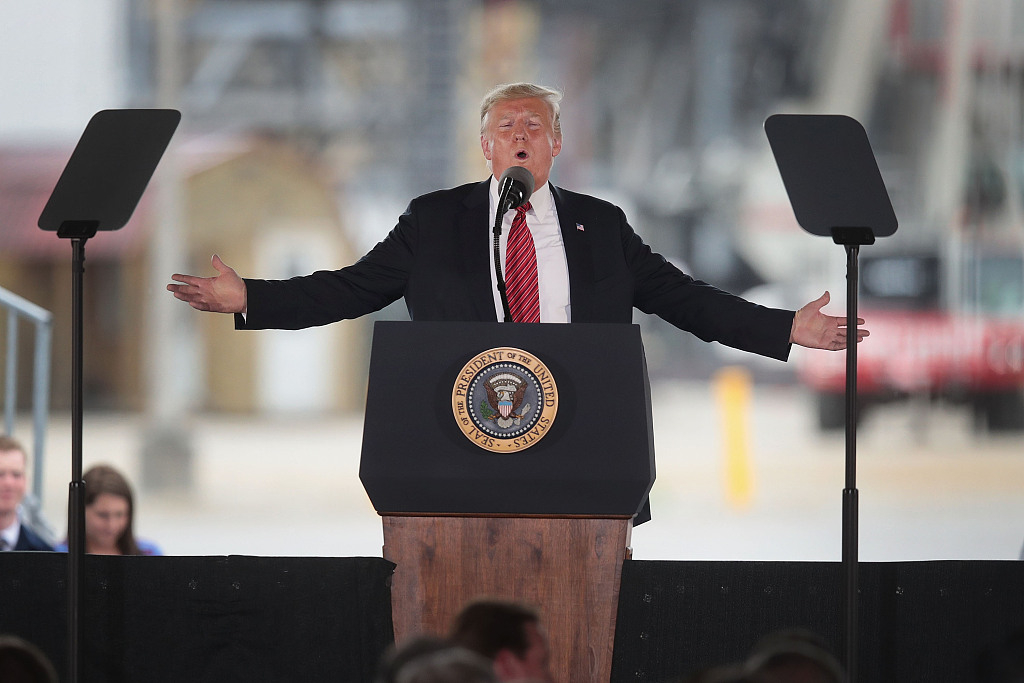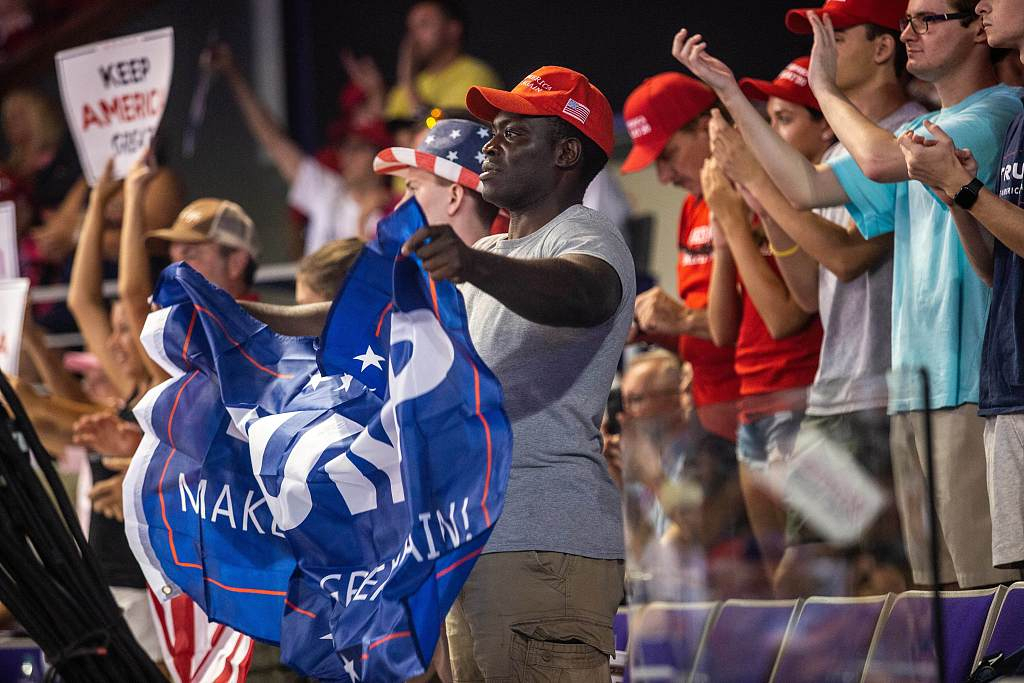
Editor's note: Freddie Reidy is a freelance writer based in London. He studied history and history of art at the University of Kent, Canterbury, specializing in Russian history and international politics. The article reflects the author's opinion, and not necessarily the views of CGTN.
As the trade talks resume, there are not many signs of a Sino-U.S. thaw. Despite the importance of the dispute over tariffs, it is only part of a wider diplomatic puzzle facing Trump as his administration puts itself on an electoral footing. At present, the disarray appears to be global, but for the American president, what is the economic and diplomatic cost as the U.S. enters another electoral cycle?
From an American perspective, the answers lie in the 2016 campaign slogans "Make America Great Again" and "America First." These weren't just slogans but the political ideology which has driven the non-politician president. In a domestic political context, unless the situation radically escalates, Trump can and will articulate China and the U.S. dispute as defending American interests which will bolster his core message and the following.
The message from the Trump camp is that for too long America has been taken advantage of in its trade agreements. This was the message sent to China when tariffs were imposed. The same message was relayed to NATO members not upholding their two-percent defense commitment, as well as to nations the president feels are benefiting from WTO "developing economy" status.

U.S. President Donald Trump speaks to guests during a visit to the Southeast Iowa Renewable Energy ethanol facility in Council Bluffs, Iowa, June 11, 2019. /VCG Photo
U.S. President Donald Trump speaks to guests during a visit to the Southeast Iowa Renewable Energy ethanol facility in Council Bluffs, Iowa, June 11, 2019. /VCG Photo
With the still intact Obama-era "Pivot to Asia" policy, the U.S. is actively trying to constrain what it sees as China's global ambitions. In so doing, the U.S. is attempting to strengthen relations with its two key allies in the Far East, Japan and South Korea. And here is the crux of the challenge: For Trump, at this stage in the electoral cycle, China isn't only a foreign policy objective but an opportunity for generating domestic political capital. To Trump's electoral base, "Made in China" means "Not made in America by American labor."
Trump has taken his image as an uncompromising "deal maker" to the White House. "America First" means deals must overwhelmingly benefit the U.S. Pursuing a tough stance with China is music to the ears of the Republican's right-wing supporters who view the Middle Kingdom as a threat to the U.S. economy while also impacting America's pre-eminence on the world stage.
Ultimately, a form of the negotiations will play out in many arenas beyond the tariff negotiating table. America will be keen to maintain the status quo within the region but that may become increasingly difficult for America's allies.
The current row on tariffs may have dented the economic prospects of both countries but if the issue persists both China and the U.S. will be able to adjust to the uncomfortable reality. On a domestic level most tariffs have been passed on to American consumers which the U.S. will have to monitor as inflation is nudged up by 0.5 percent. Washington will likely justify its position by pointing to an increase in job creation as a constituent part of better than expected economic growth, furthermore, the policy is to get Americans to choose to buy American, thereby negating a consumer burden.

Supporters during a campaign rally for U.S. President Donald Trump at East Carolina University in Greenville, U.S., July 17, 2019. /VCG Photo
Supporters during a campaign rally for U.S. President Donald Trump at East Carolina University in Greenville, U.S., July 17, 2019. /VCG Photo
If Trump secures a second term, we can expect to see an easing of rhetoric toward China as he pursues a "deal" with Beijing as a crowning glory, laying the foundation stone of his legacy. This however, is heavily dependent on Chinese patience. Should Beijing pursue a more aggressive posture with pressure applied to America's allies in the region, that could cause a serious headache to Washington and "America First" aspirations.
Trump's scant regard for the "rules based international system" could leave the U.S. isolated as nations, including China, look less to the United States and adjust their economies in the long term to a position of greater autonomy.
While the political impact of strained relations with China may not be felt in the U.S. domestic sphere, the tension will play out on the international stage and have far-reaching consequences as nations consider how to react and insulate themselves from protectionist policies from Washington. The Trump administration could unwittingly be opting for short term economic gain at the expense of global influence and stability.
(If you want to contribute and have specific expertise, please contact us at opinions@cgtn.com)